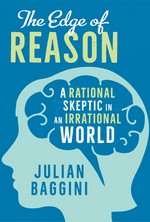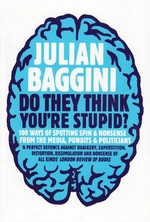Do You Think What You Think You Think?
There’s no doubting that Descartes was a pretty clever guy. But whether it was his fault or that of his acolytes, a lot of hopeless misconceptions about human nature can be traced back to him. Of all these, perhaps the greatest is the ‘incorrigibility of the mental’: the belief that we cannot be mistaken about the contents of our own minds. I think I feel pain, so I do feel pain, and there’s no way I can be mistaken about that. If I can see an elephant, then I may be hallucinating and there is no elephant there, but nonetheless, it has to be true that I am having the experience of seeing an elephant. If your coat looks yellow to me, the fact that it is really green doesn’t change the fact that it looks yellow to me. But the simple truth is that we can be horribly, tragically, painfully wrong about what is in our heads. Just think of the kinds of things people say all the time. I thought I was in love, but really it was just lust. I thought I had indigestion but actually I was pregnant. I thought I believed in socialism but when I saw my tax bill I realized that I didn’t. I thought I didn’t want my children to be different, but actually I wanted them to change so I could be closer to them. I thought I enjoyed working long hours but really I was kidding myself and I was just avoiding issues in my personal life. I thought I was being honest but actually I was holding back crucial information and deceiving him. What we ‘really’ think is an incredibly difficult area. The purpose of this book is to provide you with some entertaining ways of thinking about what and how you think, and to reveal some surprising things about both. By the end of it, we think you may well find yourself thinking that what you think you think is no longer what you thought you thought. And like that last sentence, that may be disconcerting, a little confusing, but actually quite good fun.



















